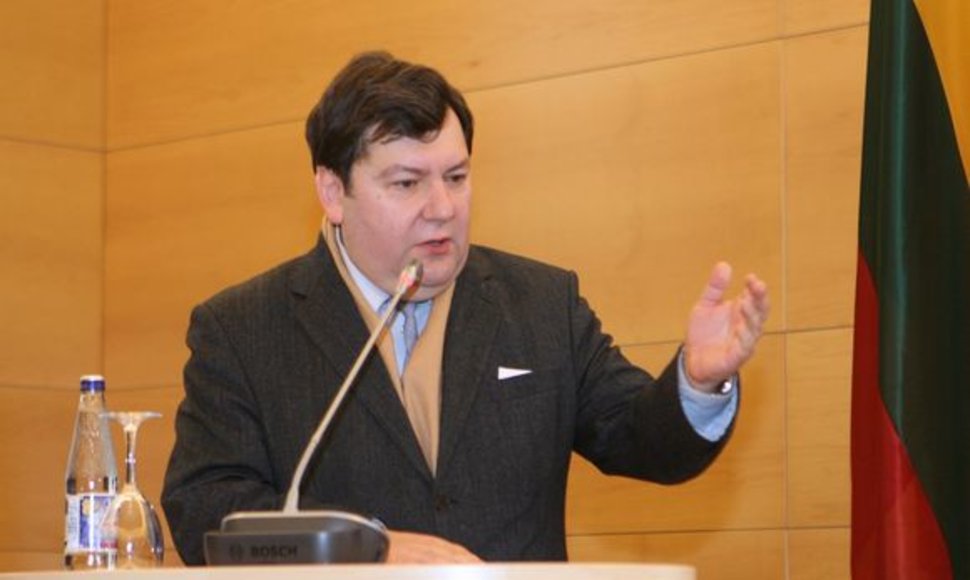"As the country is recovering, we will see a rise in national defense funding in the first budget discussions. This is something we can promise on behalf of all parties. During the next budget discussions, the attitude to defense funding will change. I cannot say it will instantly be 2 percent (…). We are starting to meet our commitments by striving to no longer be in the penultimate place in terms of funding," Zingeris, a member of the ruling Homeland Union – Lithuanian Christian Democrats, said in the parliament on Wednesday.
Lithuania's ex-ambassador to NATO Linas Linkevičius, the prime minister's public adviser on national security, said the agreement did not specify a date of when Lithuania should raise the defense funding to 2 percent of the gross domestic product (GDP).
"However, this does not mean it can be postponed indefinitely. It exists as a serious international commitment, that's what is the most important," Linkevičius said.
"Leaders of our parties wouldn't be sincere if they said we will now grant 2 percent, that's why it is not specified. However, party leaders admit existence of the commitment. The emphasis is that defense policies should not only assure security and independence but also ease social tensions. We know that about a fourth of NATO member-states earmark 2 percent to defense. Among those with 2 percent are countries that are truly going through a deep economic crisis and this causes crisis and instability in the society. Probably that is not our aim. We want our country to have stable development," he added.
Although the Wednesday's event in the Parliament was called presentation of the defense agreement to foreign ambassadors, no heads of foreign diplomatic missions were present at the Seimas. Lower-rank representatives from several embassies were present.
According to the agreement, the long-term goal is to earmark 2 percent of the GDP for the country's defense system.
Lithuania's current defense spending is under 1 percent of GDP, although NATO member-states have assumed commitment to give 2 percent.
According to the government's calculations, Lithuania's current defense spending stands at 0.95-0.97 percent of the GDP.
In 2004, 11 Lithuanian political parties committed themselves to granting at least 2 percent of GDP for defense in the 2005-2008 period as continuation of an analogous document signed in 2001. However, the objective was never attained.
2012 05 09
Commitment to bigger defense funding will be tested during next budget debates
Emanuelis Zingeris, chairman of the Lithuanian parliamentary Foreign Affairs Committee, says that the recently-signed political agreement on defense policies should lead to higher defense funding in the first discussions of the 2013 budget.
Report mistake
Successfully sent
Thank you














